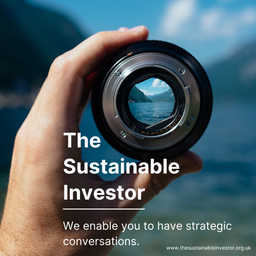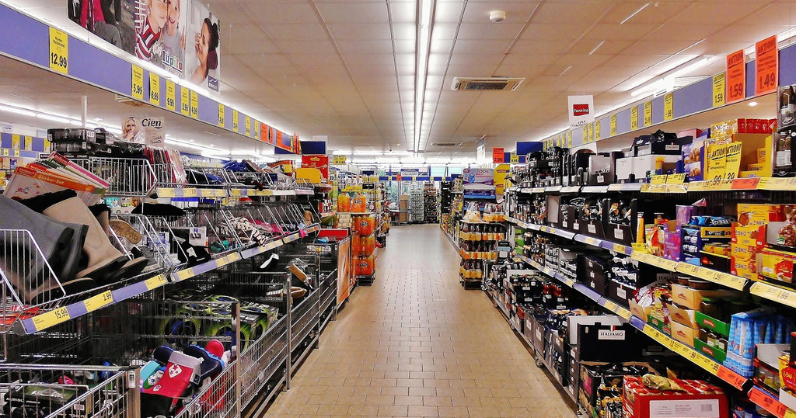Sunday Brunch: 'dirty' investments and investor expectations
Yes, demand for some 'dirty' products might collapse in the future. But, to make a compelling case to investors, we also need to understand if this negative outcome is already reflected in the current share price.
“However, once you realize the answer to most questions is, “It depends,” you are ready to embark on the quest to figure out what it depends on.” Michael J. Mauboussin
We all know the basic principle of what makes a good investment - its buying assets at a price that is lower than our estimate of what the asset is worth. We often give a lot of thought to the second part of this, estimating what we think the asset is worth. But we generally don't think enough about how the price we have to pay is set and how this impacts the financial returns we expect. How does the market decide? I will mostly talk about shares/equity, but the same principles apply to other assets such as debt.
What does this have to do with sustainable investing? That is simple. We often hear people say -'these assets not only bad for the planet, they are also a bad investment as demand for the product or service is going to collapse. And when that happens the asset will be worth a lot less. Or even zero'. And so investing in these 'dirty' assets exposes you to material financial losses.
We can all think of examples - oil & gas, thermal coal, internal combustion powered cars, and gas boilers for home heating. People often refer to these as potentially stranded assets. In my world (finance) we instead generally use the phrase 'at risk of material asset write-down'.
And what does this have to do with sustainability expectations? Again, it's simple. The above argument about stranded assets works if the asset write-down/stranded asset event is unexpected. But if investors already expect the collapse in demand to happen, then this negative impact will probably already be reflected in the share price. And so the threat of losing money on your investment will be lower.
In other words - the risk of an investor financially suffering from stranded assets depends on what they paid to buy the shares in the first place. In the words of the financial community, the risk could already be in the price.
Buying on low market expectations
One of the 'go to' authorities on expectations investing is Michael Mauboussin. He co-authored the 'classic book' on the topic (at least in my view) Expectations Investing. Some of the analysis used is complex, with lots of moving parts.
But, you don't need to understand the detail to understand the concept. And to apply it to sustainability.

Market expectations and an efficient market
The concept is simple. The market 'sets' the share price (or the value of other assets) based on collective expectations about future profits, cashflows and investment needs. These come from the expectations of thousands (or even millions) of individual investors.
If the share price is too cheap, investors who are more optimistic about the company's future will buy the shares. And if they are too expensive, then investors who are more pessimistic about the company's future will sell them.
Through this process the share price settles on what the market as a whole expects (what we call consensus). And when new information becomes available, the share price adjusts until this new data is absorbed.
We call this an efficient market - this means that all available information is reflected in the current share price. From a sustainability perspective this includes information about any possible future collapses in demand for the company products.
But it's important to recognise that not all financial markets are efficient. Sometimes the event that triggers a collapse in demand is unexpected. And sometimes opinion is divided. In this second, and more common situation, many investors wait for clearer signs of which outcome is more likely to happen. They know that the risk might crystallise, but they are not 'sure'. And so they wait.
If the share price of the company is going up, they may be prepared to wait even longer to 'see what happens'. Investors hate missing out on rising share prices.
Applying this to sustainability investing
Let's say that you are talking to people who are invested in an industry that you think will go through a massive transition as sustainability factors kick in. And you expect that the transition will expose the companies in that industry to material reductions in profitability. It might be oil & gas, or it might be transport, or coal/low grade iron ore mining.
Obviously you start by explaining why this negative event is 'going to happen' and what it would mean for the companies profitability when it does.
One push back that you might get is that 'the investor isn't worried about the risks you have told them about'. It's possible that the investor simply doesn't understand the risks very well. Or they have thought about it, but come to a different view. Both of these are good news, as you can then have a sensible debate.
And of course it's possible that they agree with you about the risks, but they don't want to act or divest while the share price is still going up (relative to the market). This is not a great situation, as it's hard to persuade them they are wrong if they expect to keep on making money from the trade.
But it's also very possible that they think this negative event is already in the share price.
To work through situations where this might be the case is a bit beyond the scope of this blog (it's something we will come back to in future blogs), as the analysis can be complex.
But the good news is that there is often a very real indicator that the bad news is already reflected in the share price - the company is cheap on traditional valuation metrics such as PE and EV/EBITDA. What the market is saying about these 'cheap' stocks is that even if things look good now (for profits), this situation will not last.
There is a lot to unpack here, but in summary, it's important to be clear in your own mind what financial case you are making to investors.
Do you think the market is mispricing the risk by under-estimating the likelihood of negative profit events? Or do you think the market is pricing the risk correctly (the stock is cheap) but that by preparing the company can minimise the harm suffered, or even turn a bad situation into a more profitable one?
One last thought
It's the simple 'truth' that 'good' financial investments do not come from having a better investment story. They come from being able to explain why the financial markets have got it wrong, and why they have mispriced the investment opportunity.
Understanding this, and explaining your 'better' narrative, could be your secret weapon in getting finance into your sustainability projects, and making your organisation's strategy more sustainable.

Please read: important legal stuff.




